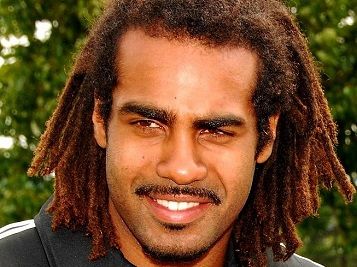AFL broadcasters and commentators routinely glorify on-field violence, writes Alex Hipgrave.
AS AUSTRALIAN Rules Football (AFL) comes out of its coronavirus quarantine, I saw a promotional ad narrated by Bruce McAvaney.
In it, he described how the players were now ready to go to “battle”, reminding me of just how little I have missed the violent vernacular so commonly found in Australian sport, particularly in AFL.
The channel 7 ad presented the viewer with images of players brutalising each other: tackling opponents into the ground, slamming them against fences, hair pulling and all-out brawls. To accompany these scenes were loud banging sounds, essentially simulating violent, physical impact.
While this general violent behaviour in AFL games is fairly clear, the complementary aspect of violent vernacular is often overlooked. Violent vernacular is a much more subtle version of the indignity that sport gifts us – one that further proves just how ingrained in our culture violence has become.
Turn on the television during the post-match interviews of an AFL game. Players routinely refer to their kicking of a ball around a grass field while wearing colourful costumes for handsome sums of money as something akin to “war” or “battle.”
The AFL and its broadcasters understand the absurdity of this, so they present viewers with a veneer of sophistication: punditry.
Pre-game, half-time and post-game shows consist of mainly ex-players turned pundits discussing the affairs of the games in designer suits, with stacks of paper sitting on the desk in front of them, accompanied by a professional studio aesthetic – fabricating an aura of civility and respectability to the otherwise incongruous proceedings of games.
And who are these expert pundits that media corporations bestow upon viewers?
Rupert Murdoch’s Fox Sports employs Eddie McGuire – who once said that he would like to see a female colleague drowned; Alastair Lynch – infamous for throwing punches on the football field; and from 2012-2016, Barry Hall – a person almost exclusively renowned for his petulant outbreaks of physical violence and vulgarity.
Perhaps most egregiously, channel 7 employs Wayne Carey – a serial domestic abuser. The AFL industry and its corporate media partners reward these men with cushy jobs, waddling onto mainstream television studio sets and preaching their violent vernacular to the nation every week.
Related Articles
- Offensive Sportsbet ad cleared despite industry double standards
- The Superbowl ... and other adverts with a little bit of sport in the background
- Go the mighty Mugars!
- Temperatures rising as hot Socceroos win the Asian Cup
- How cricket's big bash is making us big
One consequence of the violence exhibited during AFL games, both physical and rhetorical, is the significant rise in reports of domestic assaults on major game days, which is also true in the context of National Rugby League (NRL) games, the Melbourne Cup and other sporting events.
It shouldn’t come as a surprise - nor should it be considered a coincidence - that we see a 20% increase in family violence on Grand Final days when misogynists like McGuire and thugs like Carey are portrayed as the voices of intellect and respectability during the broadcasts of already physically violent affairs.
Australia must reckon with the notion that domestic abuse and glorification of violence is prevalent in our culture – especially when one of our most cherished pastimes is bristling with rhetoric from the mouths of people so intrinsically connected to those things.
That these people are propped up and transmitted into our homes on television screens should prompt embarrassment for the state of Australian culture – if not disgust.
Even a much more benign pundit such as Jonathan Brown, has spent most of his professional life voluntarily hurling his face into all manner of places, which has resulted in multiple serious head and facial injuries. His doing so, however, earned the high praise of commentators at the time, just as other players’ similar actions are commonly referred to as “courageous”, “brave” and “heroic.”
They plunged their bodies into the solid grass surface, or into fellow players, in pursuit of catching a ball. That doesn’t make them courageous or heroic - it makes them imprudent, intemperate participants in a weirdly savage and puerile activity – they shouldn’t be praised or considered role models for it.
Australia’s favourite sport is littered with rhetoric that glorifies self-inflicted violence and violence inflicted upon others. In 2016, a game between Geelong and Port Adelaide broke out into an enormous brawl at quarter time – a spectacle that Brian Taylor gleefully celebrated instead of condemning. This kind of event isn’t isolated – similar ones happen every weekend and degrade Australian society in the process.
As the AFL returns from its COVID-19 hiatus, I hope Australians can begin to see its violent vernacular for what it is and perhaps instil some dignity and amour propre into our culture.
Alex Hipgrave is a writer principally concerned with social and political issues. He is currently studying a Bachelor of Arts at Edith Cowan University, majoring in literature and writing. You can follow Alex on Twitter @alex_hipgrave.
 This work is licensed under a Creative Commons Attribution-NonCommercial-NoDerivs 3.0 Australia License
This work is licensed under a Creative Commons Attribution-NonCommercial-NoDerivs 3.0 Australia License
Support independent journalism Subscribe to IA.
















